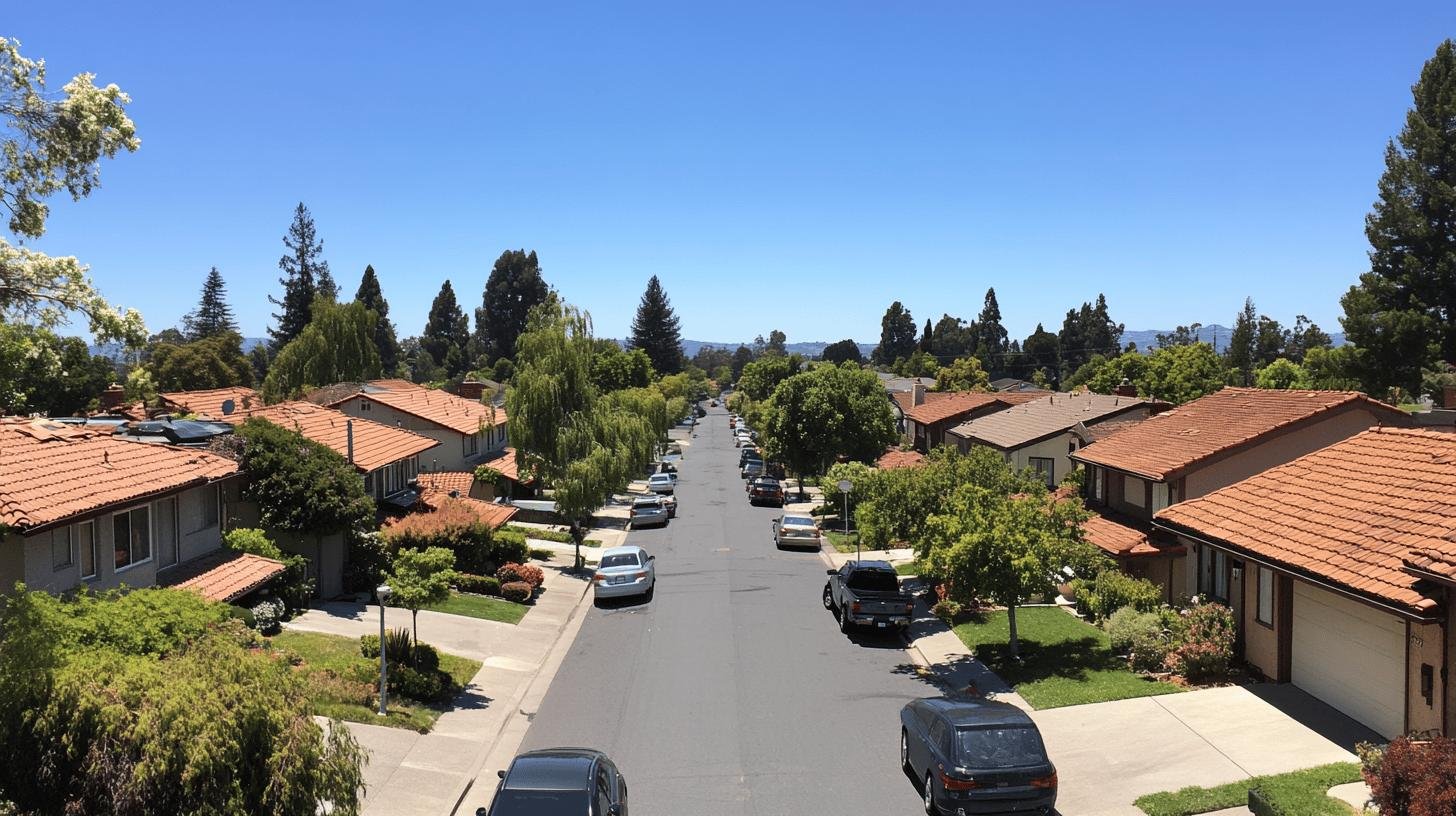TL;DR:
- Market Value: An estimate of a property’s potential selling price based on location, benefits, and comparable sales.
- Market Price: The actual amount paid in a transaction, influenced by negotiation and urgency.
- Key Differences:
- Market value is subjective; market price is fixed post-sale.
- Market value aids appraisals; market price reflects actual sales.
- Factors Affecting Market Value: Location, condition, economic conditions, comparable sales, market trends, home features, zoning, and neighborhood development.
- Implications: Misunderstanding can lead to costly mistakes in real estate transactions, affecting investments and loan approvals. Professional appraisals can help align values with realistic expectations.
Ever bought something and later wondered if you got a good deal? Welcome to the complex world of market value vs market price. While they sound similar, these terms paint very different pictures in real estate and stocks. Market value might hint at what a house should sell for, but market price is what it’s actually bought for. Want to know the key drivers behind these numbers and why they’re crucial for smart investments? Let’s dig into the nitty-gritty details and clear up the confusion between value and price.
Defining Market Value and Market Price
Market value estimates a property’s potential selling price in a competitive market. It considers factors like location, benefits such as nearby schools, and comparable sales. For example, a home with a large yard might have a higher market value than one without, even if they’re in the same area.
Market price is the actual amount a buyer pays. This results from an agreement between buyer and seller. For instance, if a house sells for $300,000, that’s its market price. This price varies with negotiation skills, urgency, or emotional attachment.
- Determination: Market value is an estimate; market price is the actual paid amount.
- Influence: Market value is shaped by perceived benefits; market price is what the buyer pays.
- Flexibility: Market value is subjective; market price is fixed after the sale.
- Usage: Market value aids in appraisals; market price is recorded in sales records.
- Trends: Market value fluctuates with trends; market price sets those trends once recorded.
Factors Influencing Market Value

Location significantly impacts market value in real estate. Properties in prime neighborhoods or near schools and hospitals usually have higher market values. The property’s condition, including its age and upkeep, also affects value. A well-maintained home with modern features typically values more than one needing repairs.
- Economic Conditions: Changes in the economy, like interest rates, influence property values.
- Comparable Sales: Sales of similar properties in the area help estimate market value.
- Market Trends: Buyer preferences, such as open floor plans, affect value.
- Home Features: Unique features like pools or energy-efficient systems boost value.
- Zoning Laws: Regulations on construction can influence market value.
- Neighborhood Development: New projects or improvements can increase property worth.
Understanding these factors is crucial for accurate property valuation, aiding informed decisions for buyers and sellers. Economic conditions might suggest waiting to sell, while neighborhood development might signal a value increase. This knowledge helps align market value with realistic expectations.
Understanding Market Price in Real Estate
Market price is the amount a buyer pays and a seller accepts in a property transaction. It reflects the real-world agreement between parties. Unlike book value, an accounting measure, market price provides a real-time snapshot of financial value. This is like a car’s selling price compared to the MSRP, which is just a guideline.
Market price influences future sales. When a property sells for a certain price, it sets a benchmark for nearby homes. This can create a ripple effect, impacting other sellers’ pricing strategies. For instance, if several neighborhood homes sell high, it can boost the area’s market value, setting a trend for future transactions.
Market Value vs. Market Price in Stocks

Market value in stocks shows what investors think a company’s shares are worth. It reflects investor sentiment and expectations. If investors expect rapid growth, the market value might be higher than the market price. Market value influences investor decisions on buying, holding, or selling shares.
Market price is the current trading price on the stock market, set by supply and demand. It’s more objective, reflecting the most recent transaction. For example, if a stock trades at $50, that’s its market price. Differences between market value and market price can be significant, especially during market volatility.
Intrinsic Value vs. Market Price
Intrinsic value helps determine a stock’s true worth through analysis of financial health and growth potential. This involves assessing cash flows, earnings, and growth. It helps investors decide if a stock is undervalued or overvalued compared to the market price. If intrinsic value exceeds market price, it might be a buying chance. Conversely, if lower, it might signify a selling time. Understanding intrinsic value is key for informed investment decisions.
Practical Implications of Market Value vs. Market Price
Misunderstanding market value and market price can lead to costly real estate mistakes. Overestimating market value might overprice a property, deterring buyers and prolonging the sale. Underestimating market price might cause a buyer to miss a good investment. Misaligned appraisals can result in loan rejections or unfavorable terms.
- Investment Risks: Misjudging market value can lead to overpaying or underselling.
- Loan Approvals: Lenders rely on market value for loan approval; discrepancies affect eligibility.
- Negotiation Leverage: Understanding provides better negotiation positions for buyers and sellers.
- Resale Potential: Accurate value assessment predicts future resale opportunities and profits.
- Market Trends: Understanding differences helps anticipate and react to market shifts.
Professional appraisals and market analysis can bridge the gap between market value and price. Appraisers offer unbiased property worth estimates, considering factors like location and condition. Market analysis provides trend insights, ensuring realistic views for strategic investments.
Final Words
The journey through the differences between market value and market price reveals key insights vital for real estate and stock investments. Defined, market value is an estimate based on features and trends, while market price is actual transaction data.
Factors like location and conditions heavily influence market value, shaping perceptions and decisions. In stocks, understanding how intrinsic value plays against market price aids smart investments. Recognizing these can guide better negotiations and financing moves.
Arming oneself with this knowledge helps in making informed financial choices, striking a balance between market value and market price, ultimately leading to smarter investments and successful transactions.
FAQ
What is the difference between market value and market price?
Market value is an estimate of what a property might get in a competitive market, focusing on its features and comparable sales. Market price is the actual amount paid in a transaction.
Is market value the same as cost price?
Market value and cost price differ. Market value estimates what a buyer might pay in a competitive setting, while cost price is how much it costs to buy or produce.
What is the market value compared to the price?
Market value is perceived potential worth. Price is the amount actually paid in a sale. They can differ based on market conditions and individual negotiations.
How do market value and market price differ in real estate?
In real estate, market value is an estimated worth based on location, condition, and comparables. Market price is the actual sales figure agreed upon by buyer and seller.
How does market price set precedents in real estate?
The market price influences future sales by establishing a benchmark for what properties in the area might sell for, affecting appraisals and valuations.
What factors influence market value in real estate?
Market value is influenced by:
- Location
- Property condition
- Comparable sales
- Economic conditions
- Neighborhood trends
- Buyer demand
What is the role of market value vs market price in stocks?
In stocks, market value reflects perceived worth by investors, while market price is what shares trade for in the market at any given time.
What is the distinction between intrinsic value and market price in stocks?
Intrinsic value is a calculated estimate of a stock’s true worth, often used by investors to find opportunities. Market price is what the stock currently trades for.
How can understanding market value vs market price impact investments?
Understanding these terms aids in:
- Negotiations
- Financing decisions
- Investment strategies
- Loan agreements
- Evaluating real estate and stock potential


